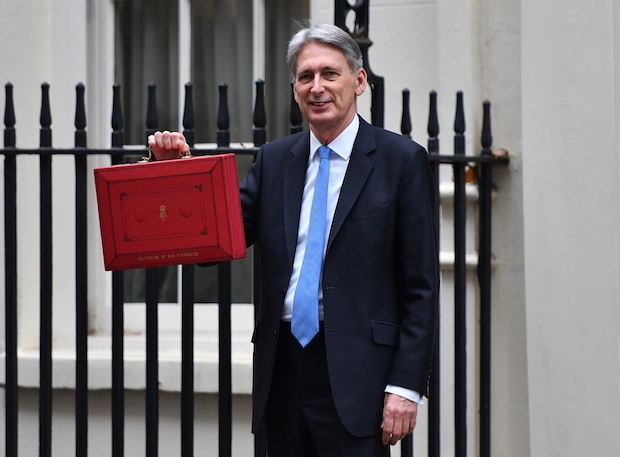It’s the day after Philip Hammond’s Budget and so far the Chancellor has managed to avoid disaster. Broadly speaking, his Budget has been well-received. The Prime Minister this morning went so far as to say the Chancellor ‘did a very good job’. Meanwhile, another of Hammond’s old foes softened its stance, with the Daily Mail celebrating Hammond’s newfound optimism and the end of the Eeyore chancellor.
However, this afternoon’s Budget briefing from the Institute of Fiscal Studies offered some grim analysis. Paul Johnson and his number-crunching team ran through the figures in the Autumn Budget in detail. Although the Chancellor managed to avoid much criticism (thanks in large to the fact he refrained from putting in many revenue raising measures which could have proved controversial), the downturn in forecasts from the OBR mean there could be difficult decisions ahead. The crucial factor here is that they are just forecasts which means there is still economic uncertainty – with the IFS saying they look about as ‘likely to be too optimistic as to be too pessimistic’.
Here are five key takeaways:
- UK faces two decades of no earnings growth
Johnson warned that the UK is facing two decades of no earnings growth; ‘We are in danger of losing not just one but getting on for two decades of earnings growth’. The IFS said the downgrade in productivity and average wages for the next five years by the OBR would lead to an unprecedented period of flat earnings growth – with wages below their 2008 level in 2022. - National debt won’t fall to pre crisis levels until IFS director is dead
According to the IFS’s Paul Johnson, the combination of government borrowing and the downgrading of growth forecasts means that it will now take until ‘well past the 2060s’ for the nation’s debt to reach 40 per cent of national income, the level before the financial crisis. Or as Johnson, 50, cheerfully put it, when it happens: ‘I’ll be dead’. - Low productivity is a global problem – but the UK experience is ‘particularly bad’
The sluggish productivity forecast from the OBR is part of a global problem: ‘This is not just a change in the UK, there’s actually been a broader slowdown across advanced economies’. The IMF expects GDP across Capita to be slowing down across the G7 – but ‘even compared to these countries the UK is expected to do worse’. The problem Hammond needs to grapple with is why the UK experience is ‘particularly bad’. - Abolishing Stamp Duty will help first-time buyers – even if property prices rise
The Chancellor’s Budget rabbit came under scrutiny on Wednesday after it was pointed out by the OBR that the biggest winner from abolishing stamp duty is the property seller – rather than the buyer. However, the IFS say that even if it is the case that property prices will rise – which they are predicted to do – that won’t mean first time buyers are worse off as a result. In fact, most will be better off as it will reduce the up-front costs even if it means a larger mortgage. Some first-time buyers could lose out, however – this will be the case if it’s not the initial deposit that is constraining but the earning level for getting a mortgage. - No allowance for the Brexit Bill
Hammond put aside £3bn to help government departments prepare for Brexit. The IFS point out, however, that there is no allowance in the current numbers for any divorce bill; ‘We don’t know when it will be paid, if it will be paid or, indeed, how large it will be – some suggestions that it will be £40bn’. The positive factor to proceedings is that the UK’s net contribution to the EU has been assumed so if this is saved it could contribute to a lower deficit of about £8-10bn each year – or… money to fund the divorce.







Comments